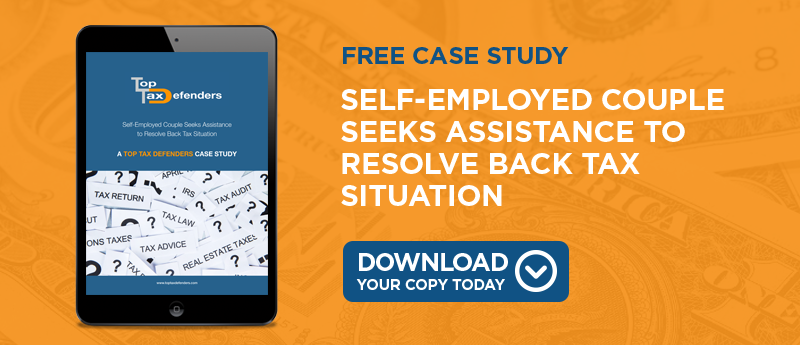Preparing to Prepare – Get Ready to File Your Taxes
Get ready for Tuesday, April 17, this year’s deadline for filing federal taxes with the Internal Revenue Service (IRS). The preparation required to put together your return can be a headache and a chore. You’ll spend time getting receipts in order and collecting tax paperwork received in the mail. Making sure you have everything needed to sit down and prepare your taxes or hand them to a professional is often just as much work as preparing the tax return. Here are some tips for getting ready to file your taxes.
ARE YOU FACING UNPAID TAXES? UNDERSTAND THE COLLECTION NOTICES YOU MAY RECEIVE »
Deduct Medical Expenses
You can deduct medical expenses that you pay that exceed 7.5 percent of adjusted gross income in 2017 and 2018. That number will rise to 10 percent in 2019, according to current law. Keeping your medical expense paperwork on hand is a good idea. Consider making a folder for medical expenses and tossing those bills into the folder throughout the year. You can also deduct expenses for mileage, bus fees, and parking costs related to medical treatment. Consider using a small notebook to keep track of mileage and other travel expenses.
If you haven’t been saving those medical bills throughout the year, you may still be able to track them down. Insurance companies may have a list of the health care providers that clients used during the year. Use that list to contact providers who billed you directly and ask for a statement of what you paid them. Don’t forget, medications, eye glasses, and hearing aid expenses are covered as well.
Monitor Business Expenses
Business owners likely have a system for keeping track of business expenses. Tossing all your receipts in a shoe box is technically a system, but not ideal. However, organizing receipts doesn’t have to be a complicated affair. A folder to hold receipts from each month may help keep them manageable by the end of the year.
Many people don’t realize it’s possible to deduct some work-related expenses, even if they aren’t self-employed. You can deduct expenses directly related to your job for which your employer does not reimburse you. Travel for work – not your commute to and from work –is deductible. This includes mileage, parking fees, and tolls. Travel expenses such as hotels, airfare, and car rentals are also deductible, as long as your employer does not reimburse you for these expenses.
Keep track of work-related expenses throughout the year by saving them in a folder specifically for work expenses. Organizing receipts this way will keep them at your fingertips when you need them. If you haven’t kept track of them this year, don’t fret. Try to go back through your calendar or bank statements to determine where and when you had business expenses. Then try to contact the hotels or rental agencies directly for statements.
DO YOU NEED IRS TAX HELP? SCHEDULE A FREE CONSULTATION WITH OUR TAX EXPERTS »
Keep Track of Tax Documents
This is the time of year when tax documents seem to come in every other day. You may receive a W-2 from an employer, a 1099 for contract labor, a 1099 for interest income, statements from your retirement investments, and so on. Gathering these can be as easy as waiting on the mail, but what if one doesn’t arrive?
Making a checklist of the documents you expect in the mail can help you keep track of any that are still missing. The IRS requires most documents to be in the mail by January 31. If you haven’t received a document by mid-February, start tracking down the source to ask for the document. If a company doesn’t have your correct address, it may believe you received the required document and won’t know otherwise.
Once you do have all the necessary documents, it is useful to sort them according to purpose. Work-related income such as W-2s go together. If you have business income, you may have several 1099s from different clients. Interest income should be separate from these, as should statements on retirement accounts.
A less common tax document you might receive is the 1099-C. This goes out any time a business cancels debt. Filing for bankruptcy, having a loan forgiven, or an old debt written off may cause you to receive one of these in the mail. The IRS may treat the cancelled debt as income, so pay attention to the form. As with any tax document, check to ensure that the information is correct. An error here could result in an audit by the IRS later. Contact the company that issued the 1099-C to ensure you get a corrected document before filing your taxes.
Organization Saves Time and Money
The headache of organizing this paperwork can be an unpleasant chore. However, when it comes time to prepare your tax return, making the process simpler can save time and frustration. Additionally, you may save money on your taxes by making sure your deduction paperwork is in order and nothing slips through the cracks. Filing taxes may never be your favorite activity, but it doesn’t have to be a nightmare.



